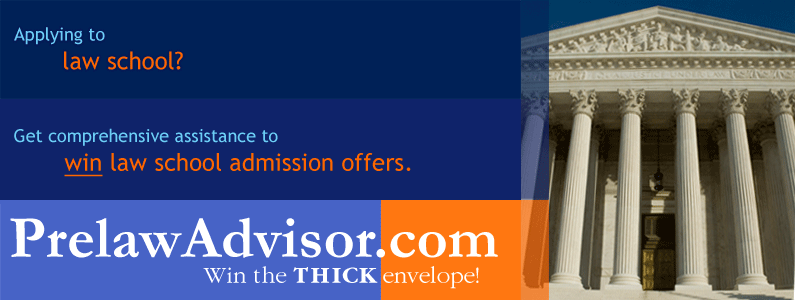Can Senior Citizens Go to Law School?
 Thursday, November 16, 2006 at 12:57PM
Thursday, November 16, 2006 at 12:57PM The short answer is, of course they can. If you have been thinking about going to law school as a mature adult, it is possible for law school doors to open for you. As baby boomers and older adults reinvent themselves in their senior years, some will want to take the journey towards becoming a lawyer. Others will do it to seek the intellectual adventure of learning about the law. There are many opportunities to do so.
Am I too old to go? Law schools do not place a limit on the age of their students. In fact, they welcome the seasoning effect of some mature adults as students, knowing that they offer a perspective based on life and work experience that a 26-year-old student (about the average age of a current full-time law student) simply cannot yet provide. Your life and previous work experience may well be a very useful foundation for the systematic study of the law. Life experience can be like “money in the bank” for the process of earning a law degree.
What types of law schools are there? Think of law schools as essentially in three categories: national, regional and local. Within each category you will see both public and private law schools. National law schools, like Harvard,
What is law school really like? In a couple of sentences, law school is the study of disputes. What happens when things go wrong in complex relationships? How is the law structured to resolve problems? Where is new law needed? You should feel free to visit any law school of interest to you. Expect to see many, many students far younger than you, but look for those in your age bracket as well. Stop in to the admissions office. Introduce yourself. Pick up materials. Go on a tour. Talk to students. Get permission to sit in several classes. Say hello to law school professors (who may look remarkably young to you!). Seek to meet older students. Ask about their experience. Visit multiple law schools, so that you can begin to see the differences in law school style and culture.
What skills will I need to start law school? Love of reading, attention to detail, familiarity with the use of a laptop computer, persistence, patience, a desire to debate issues, an eagerness to speak in public, and a willingness to consider both sides of many arguments. You will journey both backwards in time to see historic cases in the law, and you will visit the very edge of contemporary legal issues, as the law grapples with new controversies and novel problems. You will begin to see the vast statutory and judge-made structure of the law. You will likely encounter exceptionally talented law school professors, but also those who will drive you crazy. Teaching talent in law school varies tremendously.
How do I apply? First, understand that you do not need a formal relationship with a law school to begin your learning about the law. You can—and should—engage in a great deal of reading and personal learning before you start the application process. Begin with the free resources of the Law School Admission Council, at www.lsac.org. But understand that LSAC represents first the interests of law schools. It offers no assistance, for example, on the issue of law school ranking. You need to go to US News & World Report at www.usnews.com to see its enormously influential law school ranking information. Explore the bibliography offered by LSAC at www.lsac.org/pdfs/2006-2007/ResourcesforthePrelawCandidateJuly06.pdf. You could spend years profitably reading from it before law school. My favorite suggested prelaw reading list for incoming law students is found at
What about the LSAT? The Law School Admission Test is required by all ABA-approved law schools. It is a tough, demanding test of one’s reading comprehension and analytical abilities. For applicants who are mature adults, far from their college years, law schools will consider very carefully your LSAT result. It is heavily weighted in the admissions process. Law schools may deny it, but the LSAT in effect is the “IQ test” for law school. But the good news is that with thoughtful, effective and perhaps a long period of preparation using practice tests, the LSAT can be mastered. Do not take the real LSAT until you are repeatedly scoring in practice tests at least in the LSAT range associated with the students enrolling at your target law school. Both LSAC and US News offer this information.
____________________________________________________
Brad Dobeck is an attorney and president of PrelawAdvisor.com.

